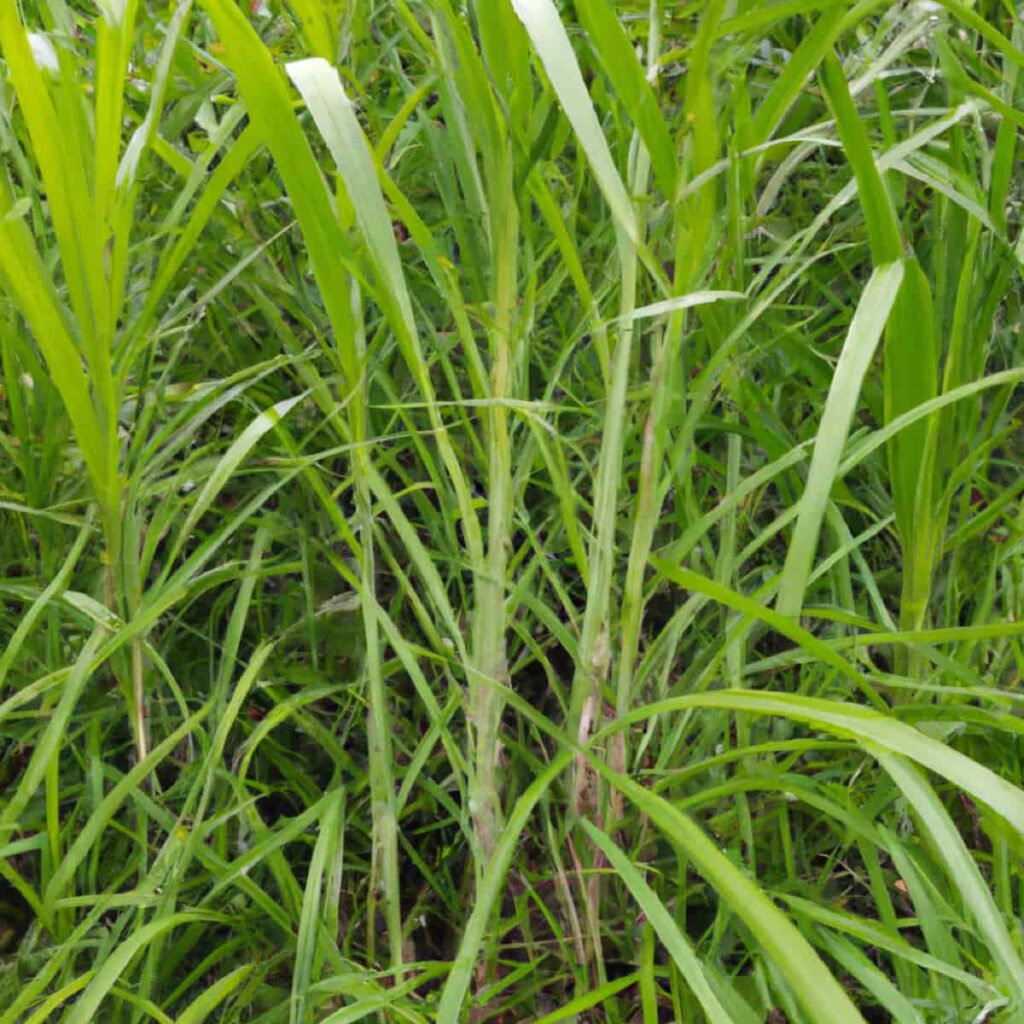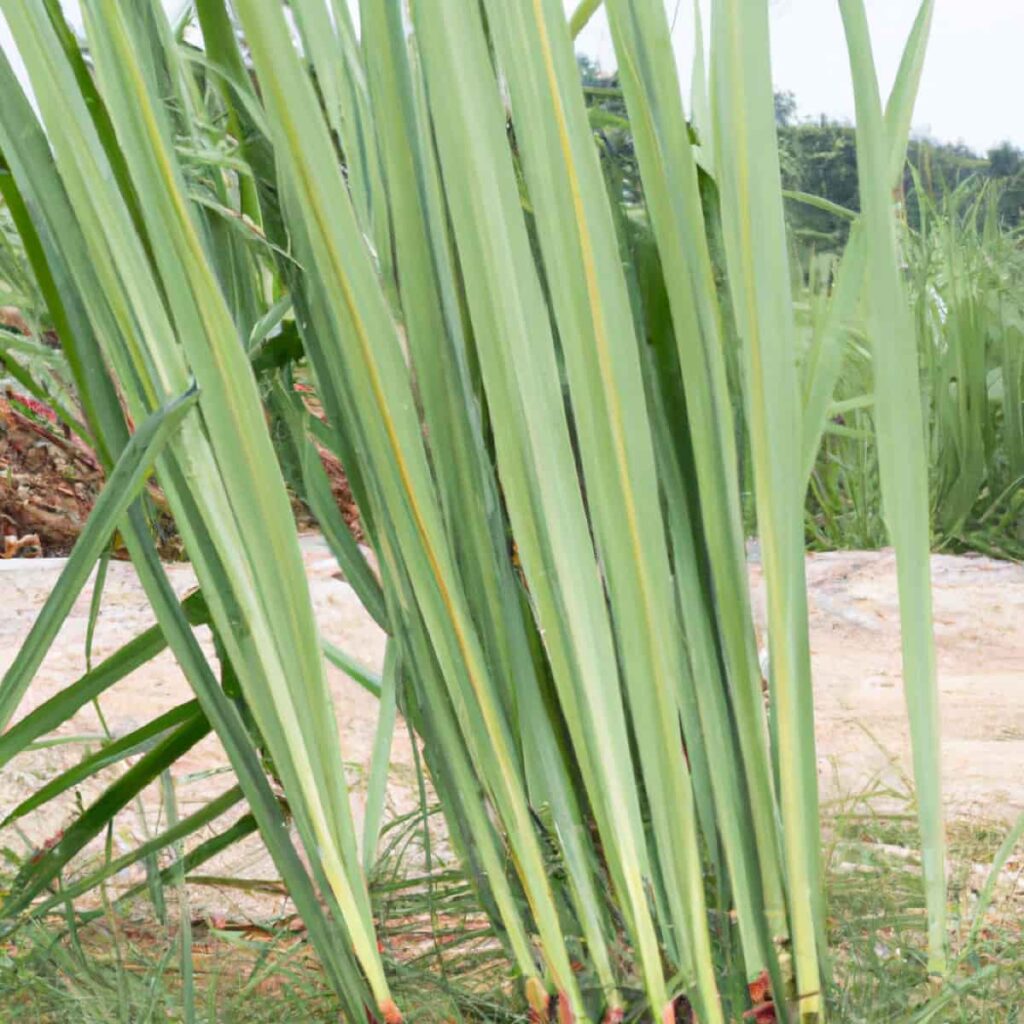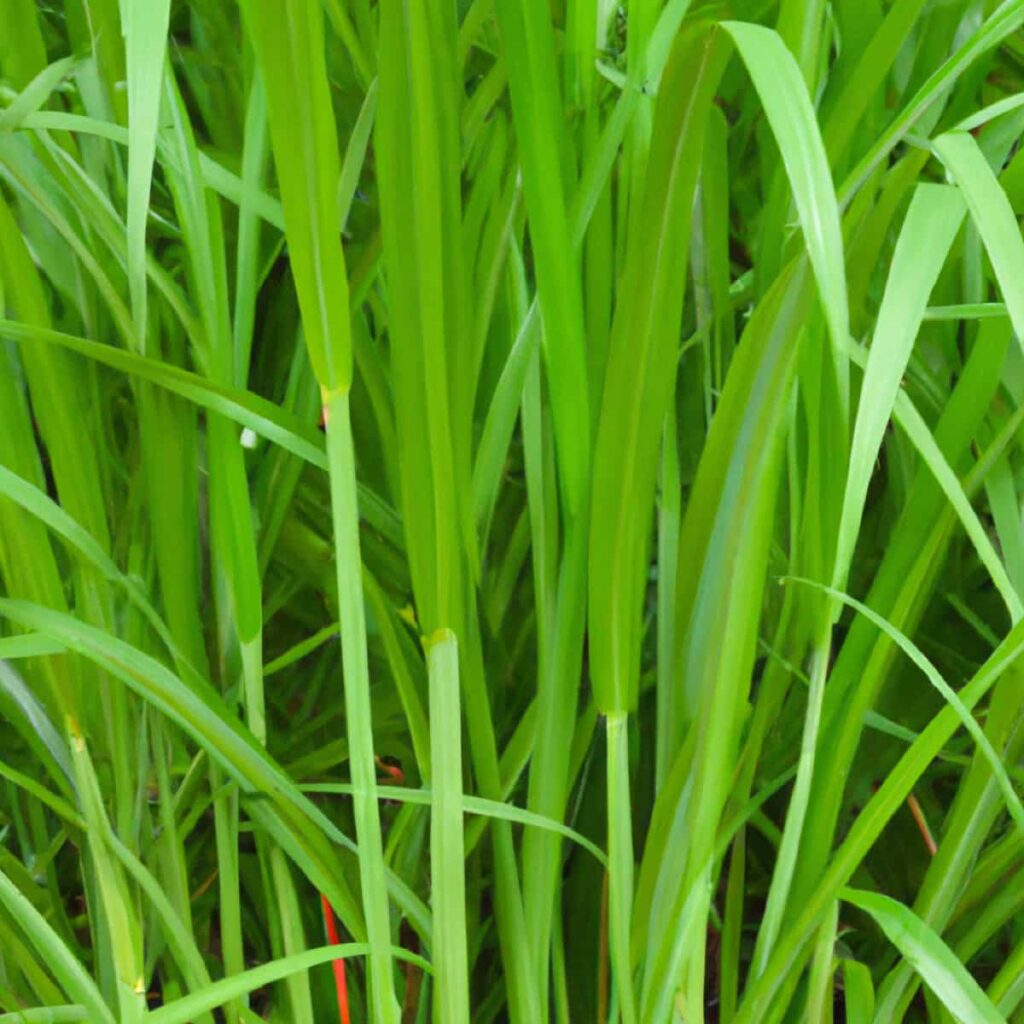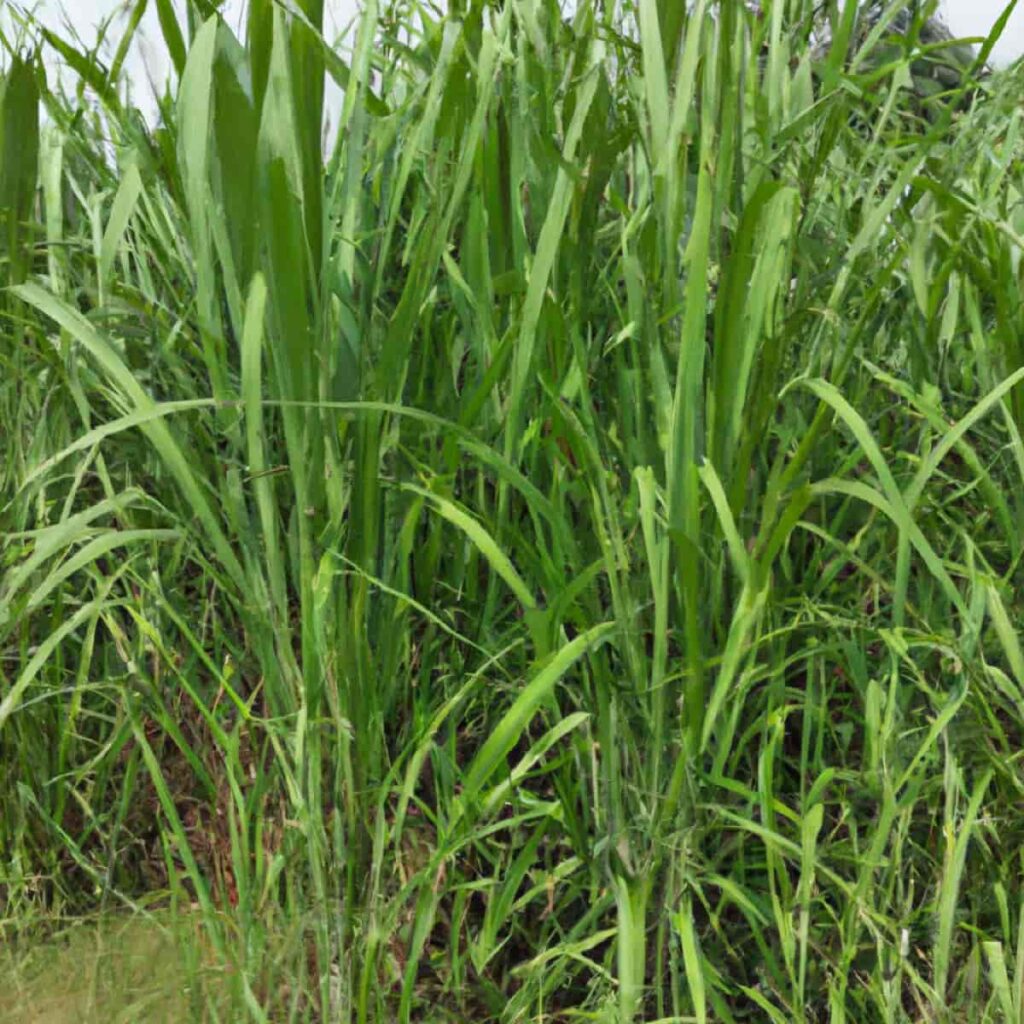You may be wondering how to grow super Napier grass from seed. Super Napier grass is a perennial grass native to Africa and Asia. It is a fast-growing grass that can reach up to 6 feet tall in just a few months. This grass is often used for animal fodder and as a biofuel or construction material. If you are interested in the subject of how to grow super Napier grass, read on for some tips on how to do so.

How to grow Super Napier Grass
What is super Napier grass?
Super Napier grass is a type of forage grass that is native to Africa. It is a highly nutritious and palatable grass often used as livestock feed. Super Napier grass is a perennial grass that can grow up to 3 meters in height. It has large, thick leaves that are dark green. The blades of the leaves are serrated, and the leaf margins are slightly hairy. Super Napier grass produces inflorescences composed of many small, yellow flowers. These flowers are borne on stout, erect stems. The seeds of super Napier grass are small, black, and glossy.
Super Napier grass benefits
Super Napier grass is a high-yielding, multipurpose forage crop for grazing, hay, and silage. It is a fast-growing perennial grass that can reach up to 6 feet in height. It contains a high protein content and is highly digestible, making it an excellent feed for livestock. It is also tolerant of drought and heat, making it a suitable crop for many regions.
Propagation of super Napier grass
Super Napier grass is a tropical, perennial forage crop that can be grown from seed. It is a high-yielding crop that can be used for grazing or cut and carried to feed livestock. Super Napier grass has a deep root system and can tolerate periods of drought. To propagate super Napier grass from seed, sow the seeds in a nursery bed or pot filled with well-drained soil.
Water the seeds regularly and keep them moist until they germinate. Once the seedlings are large enough to handle, transplant them into individual bags or pots. Grow the seedlings in a warm, sheltered location until they are ready to plant out into their final position. When planting super Napier grass, choose a sunny spot in well-drained soil.
Space the plants 1-2 meters apart. During dry periods water regularly and fertilize monthly with a high-nitrogen fertilizer such as chicken manure or composted green waste. Cut the plants back to ground level every 6-8 weeks during the growing season to encourage new growth and prevent them from getting too leggy.
In case you missed it: How to Start Rice Farming in Cambodia: Business Plan, Rice Varieties, Cultivation Practices, and Yield

How to grow super Napier grass in containers
If you want to add some green to your diet, look no further than the super Napier grass. This nutrient-rich grass is a great source of vitamins and minerals and is easy to grow from seed.
What You’ll Need:
- Super Napier grass seeds
- Potting soil
- Peat moss or coco coir
- Watering can or spray bottle
- Sunlight (direct or indirect)
Instructions
- Fill a planting container with potting soil and peat moss or coco coir. Add water until the mixture is moist but not soggy.
- Sow the super Napier grass seeds on top of the soil mix, spacing them evenly apart. Gently press them into the surface of the mix.
- Water the seeds regularly, keeping the soil moist but not soggy. If using a watering can be sure to water at the base of the container so as not to disturb the seeds.
- Once the seeds have germinated (sprouted), give them plenty of sunlight (direct or indirect). Keep watering as needed, ensuring the soil doesn’t dry out completely.
- When the grass is several inches tall, you can start harvesting it.
Benefits of growing super Napier grass
Super Napier grass is a perennial forage crop that can provide excellent nutrition for livestock. It is a high-yielding crop that can be grown in various climates and soil types. It contains a high protein content and is rich in minerals and vitamins. It is an excellent source of fodder for ruminants and can also be used as green manure or mulch. Super Napier grass is easy to establish from seed and can be grazed or cut for hay once it reaches maturity.
How to care for super Napier grass
Super Napier grass is a tropical perennial grass that can grow up to 6 feet tall. It is a fast-growing grass that does well in full sun and moist soil. This grass is native to Africa and Asia and was introduced to the United States in the early 1900s. Super Napier grass is a warm-season grass that will go dormant during winter. In its natural environment, this grass grows in areas that experience little to no frost.
If you live in an area with cool winters, you will need to provide some protection for your Super Napier grass during the dormant period. The best way to care for Super Napier grass is to fertilize it regularly and mow it at least once a month. This grass does not require much water, so be sure not to over-water it. When watering, give the roots a deep soaking about once a week.
In case you missed it: Pest and Disease Management in Kiwi: Causes, Symptoms, Treatment, Chemical, and Biological Control

Planting method of super Napier grass
Super Napier grass is a warm-season annual grass native to tropical and subtropical regions worldwide. It is a fast-growing grass that can reach up to 6 feet in height. Super Napier grass is often used as forage for livestock and as a cover crop or green manure crop. To grow super Napier grass from seed, you must purchase seeds from a reputable supplier. Seeds can be placed directly in the ground or started indoors in pots. If you are starting the seeds indoors, sow them a few weeks before your area’s last frost date.
When planting super Napier grass, choose a sunny spot with well-drained soil. You will also need to fertilize the soil before planting. To do this, you can use commercial fertilizer or add compost or manure to the soil. Once your seeds have germinated, thin out the seedlings, spaced about 18 inches apart. Keep the soil moist by watering regularly, especially during dry periods. You can begin harvest within 60 days after planting.
How long does super Napier grass take to grow?
Super Napier grass is a fast-growing, vigorous grass that can reach up to 6 feet in height. It typically takes about 60 days for the grass to reach its full height. However, it can take longer or shorter depending on the growing conditions.
How much super Napier grass per acre?
One acre can yield about 4,000 to 6,000 pounds of dry forage. An acre can produce about 60 to 100 bushels when grown for grain. The average plant height is 3 to 5 feet, with a stem diameter of 0.75 to 1.5 inches.
Is super Napier grass good for goats?
Yes, super Napier grass is good for goats. Super Napier grass is a high-yielding forage crop that can be used to feed goats. It is also known to improve milk production in lactating goats. Super Napier grass is rich in nutrients and minerals essential for goats’ health.
In case you missed it: Integrated Pest Management (IPM) in Vegetable Crops: Methods, How to Implement, Pros, and Cons

Is super Napier grass good for cows?
Yes, super Napier grass is good for cows. It is a high-yielding forage crop that can provide up to 18% crude protein in dry matter. It is also rich in calcium and phosphorus, which are essential nutrients for cattle. Super Napier grass is also highly digestible, making it an ideal feed for cows.
How many times can you harvest super Napier grass?
Super Napier grass is a very productive crop; you can harvest it multiple times throughout the growing season. The number of harvests will depend on the variety of grass you are growing, as well as the length of your growing season. If you are growing super Napier grass for hay, you will likely only harvest it once or twice during the season. However, if you are growing it for grazing, you may be able to harvest it several times.
It is essential to keep track of how much grass your animals are eating so that you don’t overgraze the pasture and damage the roots of the plants. Super Napier grass is a versatile crop used for many different purposes. Whether you are growing it for hay or grazing, you can enjoy multiple harvests throughout the season.
How can I make my grass grow super Napier grass fast?
You can do a few things to ensure your grass grows quickly and healthily. First, start with a high-quality seed. You can find this at your local nursery or home improvement store. Make sure to plant the seed in well-draining soil and water it regularly. You should also fertilize your grass regularly, using a fertilizer made specifically for Napier grass. Lastly, mow your grass regularly to keep it from getting too long. By following these simple steps, you will have a beautiful, healthy lawn in no time!
How much water does super Napier grass need?
Super Napier grass is tropical grass that can grow up to 15 feet tall. It is native to Africa and Asia and has been introduced to the United States. It is a fast-growing grass used for fodder, erosion control, or as an ornamental plant. Super Napier grass needs plenty of water to grow well. It should be watered deeply and regularly, especially during dry periods. If grown in containers, it will need to be watered more often.
In case you missed it: Nutritional Deficiencies in Tomato Crop: How to Fix, Solutions, and Treatment

Super Napier grass disadvantages
Super Napier grass is a fast-growing, tall grass that is often used as forage for livestock. It is a hybrid of two other types of grass and was created to be more nutritious and palatable than either parent species. However, there are some disadvantages to growing and using Super Napier grass. First, the high nutrient content of Super Napier grass can make it difficult to digest for some animals. If not properly managed, animals grazing on this grass can suffer from malnutrition or digestive issues.
Second, because it grows so quickly, Super Napier grass can become invasive if not kept in check. It can crowd out other plants in a pasture, and its roots can cause soil erosion. Third, while the nutritional content of Super Napier grass is beneficial for livestock, it can be harmful to humans if consumed in large quantities. The high levels of nitrogen in the plant can lead to liver damage and other health problems in people. Thus, while Super Napier grass has many advantages as a forage crop, some significant disadvantages must be considered before planting it.
Super Napier Grass price per kg
Super Napier grass is a highly nutritious forage crop in many parts of the world. The average price of Super Napier grass per kg is $0.75.
In case you missed it: How to Grow Alfalfa from Seed: A Guide to Planting to Harvesting

Super Napier grass seeds price
In India, Napier grass seeds per kg are about Rs. 700.
Conclusion
If you’re looking for an easy-to-grow grass that can provide plenty of fodder for your animals, then you should consider growing super Napier grass. With just a little care, you can have a lush and healthy crop of grass that will provide plenty of food for your livestock.
- Crops Grown in Summer Season: Best Choices for Summer Gardening
- Organic Pest Control for Tomato Farming
- How to Maximize Sheep Farming Profit
- Broccoli Varieties: Choosing the Right Cultivars for Your Farm
- How to Raise Pigs in Your Own Backyard: A Comprehensive Guide
- Budget Friendly Sheep Shed Ideas: Cheap and Low-Cost Tips
- How Much Do Cattle Farmers Make: Revenue Streams in Cattle Farming
- Management Pests and Diseases in Your Cotton Field
- Sheep Farming Business Plan for Beginners
- Aquaponic Farming at Home: A Step-By-Step Guide
- Profitable Village Farming Business Ideas in 2024
- High-Yield Aquaculture: Fast-Growing Fish for Farming
- Effective Fish Pond Construction Techniques for Beginners
- Irrigation and Water Management in Pineapple Farming
- Blossom to Harvest: Mastering Flowering and Pollination in Papaya Farming
- Pig Fattening Essentials: From Selection to Sale for Beginners
- Raising Wagyu Cattle: A Complete Guide for Premium Beef Production
- Soil Types and Their Water Holding Capacity
- Optimizing Irrigation Schedules for Coconut Groves for Enhanced Yield
- Espresso Your Garden: Coffee Grounds for Healthier Acid-Loving Plants
- The Best Soil Mix for Snake Plants: How to Mix Your Own Snake Plant Soil
- Green Thumb Success: Expert Tips for Cultivating Greenhouse Beans All Year Round
- Bloom All Year Round: The Ultimate Guide to Indoor Hyacinth Care
- Eco-Friendly Gardening: How to Make Liquid Fertilizer from Kitchen Waste
- Ultimate Guide to Grow Anise in Pots: Explore Seed Propagation to Harvesting
- Guide to Raising Chester White Pigs: Discover Breed Facts to Growth Management
- Mastering the Elegance: The Ultimate Guide to Weeping Cherry Tree Care, Planting, and Maintenance
- Ultimate Guide to Planting Garlic in Grow Bags: Growing Strategies for Beginners
- How to Fix Spider Plant Leaf-Related Problems: Natural and Organic Remedies
- 10 Reasons Why Your Tulsi Plant is Shedding Leaves: Home Remedies and Solutions
- Optimizing Growth and Yield: The Advantages of Palm Bunch Ash Fertilizer
- Utilizing Neem Oil Extract as a Natural Pesticide for Hydrangea
- From Soil to Harvest: Various Ways in Which Farmers Can Use AI Tools
- Steps to Encourage and Induce Citrus Flowers: A Comprehensive Guide
- How to Fix Snake Plant Leaf-Related Issues: Natural and Organic Remedies
- Transform Your Garden into a Fragrant Oasis with Raat Ki Rani (Night Blooming Jasmine)

Excellent Post
Thanks for your teaching farmers